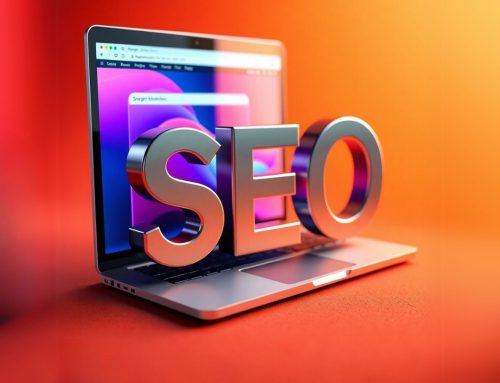The e-commerce landscape is booming, with entrepreneurs and small business owners jumping on the digital bandwagon to reach broader audiences and boost sales. But with so many platforms available, selecting the right one can be a daunting task. Two of the most popular options are WooCommerce and Shopify. This blog post will help you decide which platform is best for your business by comparing their key features, user experience, SEO capabilities, integrations, security measures, and more. By the end of this post, you’ll have a clearer idea of which platform suits your needs and how to leverage it for maximum success.
Key Features Comparison
Customization
When it comes to customization, WooCommerce and Shopify both offer unique advantages. WooCommerce, being a WordPress plugin, provides almost limitless customization opportunities. You can tweak every aspect of your store, from design to functionality, using various themes and plugins. On the other hand, Shopify offers a more streamlined approach with its user-friendly interface and a wide range of themes. While you might not have the same level of control as WooCommerce, Shopify’s customization options are sufficient for most businesses.
Ease of Use
Ease of use is a crucial factor for any e-commerce platform. Shopify excels in this area with its intuitive drag-and-drop builder, allowing even non-tech-savvy users to set up their store quickly. WooCommerce, while powerful, has a steeper learning curve. You’ll need some familiarity with WordPress and may require additional plugins to achieve desired functionalities. However, if you’re comfortable with WordPress, WooCommerce offers a flexible and robust experience.
Scalability
Scalability is essential for growing businesses. Shopify is known for its scalability, handling everything from small stores to large enterprises with ease. Its cloud-based infrastructure ensures your store can manage high traffic without performance issues. WooCommerce is also scalable but depends heavily on your hosting provider. With the right hosting environment and optimizations, WooCommerce can scale effectively, but it may require more hands-on management.
Pricing
Pricing is a significant consideration for any business. Shopify operates on a subscription model, with plans starting at $29 per month and going up to $299 for advanced features. Each plan includes hosting, security, and customer support. In contrast, WooCommerce is free to use, but you’ll need to pay for hosting, domain registration, premium themes, and plugins. Depending on your needs, WooCommerce can be more cost-effective but requires careful budgeting for additional services.
User Experience
Customer Support
Customer support can make or break your e-commerce experience. Shopify offers 24/7 customer support via chat, email, and phone, ensuring you can resolve issues quickly. WooCommerce relies on community support and forums, with additional help available through WordPress experts. While WooCommerce support is extensive, it may not be as immediate as Shopify’s dedicated support team.
Design Flexibility
Design flexibility is crucial for creating a unique store. WooCommerce’s integration with WordPress means you have access to thousands of themes and design options. You can customize every aspect of your store, making it truly unique. Shopify offers a range of professionally designed themes, many of which are mobile-responsive and easy to customize. While it may not offer the same level of flexibility as WooCommerce, Shopify’s themes are more than adequate for most businesses.
Mobile Responsiveness
With an increasing number of shoppers using mobile devices, mobile responsiveness is a must. Both WooCommerce and Shopify offer mobile-responsive themes, ensuring your store looks great on any device. Shopify’s themes are designed with mobile-friendliness in mind, providing a seamless shopping experience. WooCommerce’s mobile responsiveness depends on the theme you choose, so it’s essential to select a theme optimized for mobile use.
SEO and Marketing Tools
SEO Capabilities
SEO is vital for driving organic traffic to your store. WooCommerce, being part of WordPress, benefits from extensive SEO plugins like Yoast SEO. These tools offer advanced SEO capabilities, helping you optimize your site for search engines. Shopify has built-in SEO features, including customizable title tags, meta descriptions, and alt text. While not as advanced as WooCommerce’s plugins, Shopify’s SEO tools are sufficient for most businesses.
Marketing Tools
Marketing tools are essential for promoting your store and driving sales. WooCommerce offers a plethora of marketing plugins, from email marketing to social media integration. You can create targeted campaigns and track their performance with ease. Shopify also provides robust marketing tools, including email marketing, social media integration, and analytics. Both platforms offer powerful marketing capabilities, but WooCommerce’s extensive plugin library gives it an edge in customization.
Integrations and Add-ons
Third-Party Integrations
Integrations and add-ons enhance your store’s functionality. WooCommerce, with its open-source nature, supports numerous third-party integrations, from payment gateways to shipping solutions. Its extensive plugin library allows you to add any feature you need. Shopify also offers a wide range of integrations through its App Store. While it may not have as many options as WooCommerce, Shopify’s integrations cover all essential functionalities, ensuring a seamless experience.
Enhancing Store Functionality
Enhancing store functionality is crucial for providing a superior shopping experience. WooCommerce’s flexible architecture allows you to add features like product reviews, wish lists, and advanced search capabilities. Shopify’s App Store provides similar functionalities, with apps designed to improve customer experience and streamline operations. Both platforms offer ways to enhance your store, but WooCommerce’s flexibility gives it a slight advantage.
Security and Maintenance
Security Measures
Security is paramount for any e-commerce store. Shopify handles security at the platform level, providing SSL certificates, PCI compliance, and regular updates. This ensures your store is secure without requiring additional effort. WooCommerce relies on your hosting provider for security. While you can implement robust security measures, it requires ongoing management and vigilance. Both platforms can be secure, but Shopify’s built-in security features offer peace of mind.
Maintenance Requirements
Maintenance is an ongoing task for any e-commerce store. Shopify handles all maintenance, including updates and backups, allowing you to focus on your business. WooCommerce requires more hands-on management. You’ll need to keep your WordPress site, plugins, and themes updated to ensure smooth operation. While WooCommerce offers flexibility, it comes with a higher maintenance burden compared to Shopify.
Summary
Choosing between WooCommerce and Shopify depends on your business needs and preferences. WooCommerce offers unparalleled customization and flexibility, making it ideal for businesses looking to create a unique online presence. Shopify’s ease of use and built-in features make it a great choice for those seeking a hassle-free setup and reliable support. Both platforms have their strengths, and the best choice depends on your specific requirements. To make an informed decision, consider your budget, technical expertise, and long-term goals. Whichever platform you choose, leveraging its features effectively can help you achieve e-commerce success.
Explore further and decide which platform aligns best with your business goals. If you’re still unsure, connect with our team to get personalized advice and take the next step towards building your online store.





